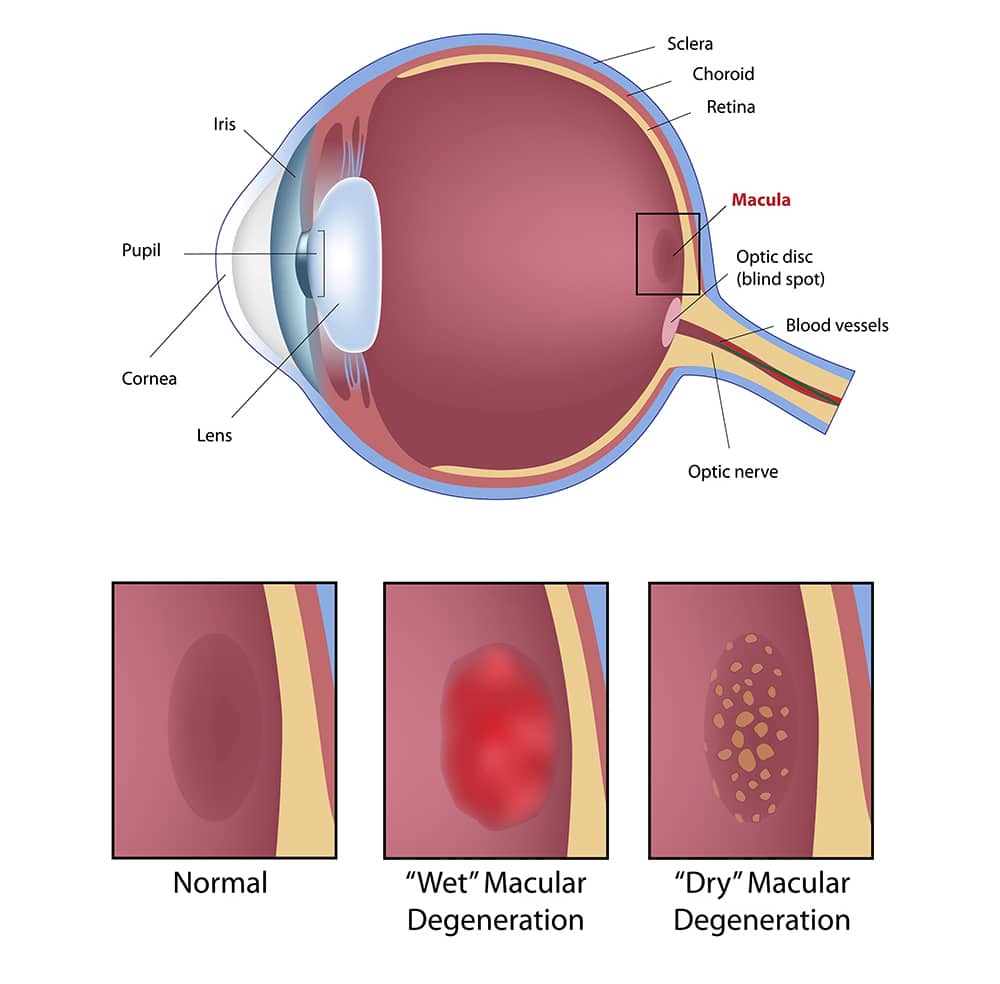Macular Degeneration

Do you have macular degeneration? Though there is no cure for the eye condition, there are ways to treat it to slow down the progression of macular degeneration.
What is Macular Degeneration?
Age-related macular degeneration (AMD) is an eye condition that’s the most common cause of severe vision loss in those 50 and older. Macular degeneration occurs when part of the retina, known as the macula, suffers damage.
When you have macular degeneration, it only affects your central vision.
Your central vision would include the ability to see fine details, like seeing faces, driving, and reading smaller print in books or newspapers. There are often no signs or symptoms of macular degeneration in its early stages.
Are there any Signs or Symptoms of Macular Degeneration?
In its early stages, macular degeneration usually has no discernible symptoms. Patients with macular degeneration may not realize it because of this.
Common signs or symptoms of macular degeneration include:
The symptoms of macular degeneration are not exclusive to this eye condition. If you begin experiencing these symptoms, see your eye doctor to determine their cause.
What are the Different Types of Macular Degeneration?
There are two kinds of macular degeneration: dry and wet. Of the two, dry is the most common.

Dry Macular Degeneration
Dry macular degeneration is the most common form, affecting about 80% of people with the eye condition. Dry macular degeneration occurs when cells in the macula break down slowly over time.
When these cells break down, it causes the macula to get thinner with age, leading to a protein called drusen growing. Most people with dry macular degeneration will have this occur in one eye at a time.
The vision loss that dry macular degeneration causes is typically gradual, and you may not notice it immediately. There is currently no way to treat dry macular degeneration.
Wet Macular Degeneration
Wet macular degeneration is the rarer form of macular degeneration, but it’s far more severe. Wet macular degeneration occurs when new, abnormal blood vessels grow under the retina.
These new blood vessels are not as strong as normal vessels, so they often leak fluids or blood, which scars the macula. Patients with wet macular degeneration experience vision loss faster than dry macular degeneration.
What Can I Expect After a Macular Degeneration Diagnosis?
If you receive a macular degeneration diagnosis from your eye doctor at the Eye Center of St. Augustine, we’ll follow up with the appropriate next steps. These include referring you to a trusted community partner for treatment.
If you have wet macular degeneration, treatment may consist of anti-VEGF injections to reduce the production of abnormal blood vessels in the retina and slow down any leaking.
Learn more about macular degeneration by scheduling an appointment at the Eye Center of St. Augustine in St. Augustine, FL!
